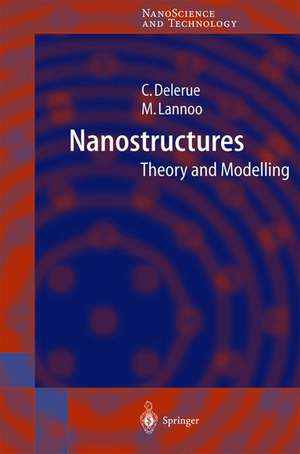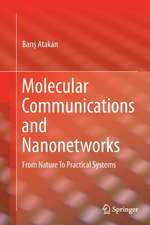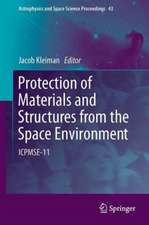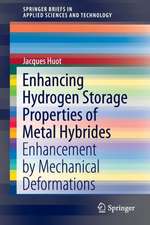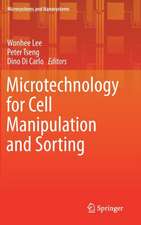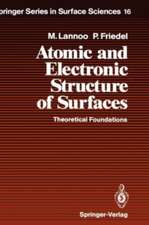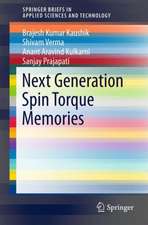Nanostructures: Theory and Modeling: NanoScience and Technology
Autor Christophe Jean Delerue, Michel Lannooen Limba Engleză Hardback – 17 feb 2004
| Toate formatele și edițiile | Preț | Express |
|---|---|---|
| Paperback (1) | 945.62 lei 6-8 săpt. | |
| Springer Berlin, Heidelberg – 6 dec 2010 | 945.62 lei 6-8 săpt. | |
| Hardback (1) | 951.77 lei 6-8 săpt. | |
| Springer Berlin, Heidelberg – 17 feb 2004 | 951.77 lei 6-8 săpt. |
Din seria NanoScience and Technology
- 24%
 Preț: 905.77 lei
Preț: 905.77 lei - 18%
 Preț: 1123.35 lei
Preț: 1123.35 lei - 18%
 Preț: 964.71 lei
Preț: 964.71 lei - 18%
 Preț: 1121.76 lei
Preț: 1121.76 lei - 15%
 Preț: 655.60 lei
Preț: 655.60 lei - 18%
 Preț: 1390.11 lei
Preț: 1390.11 lei - 18%
 Preț: 954.31 lei
Preț: 954.31 lei - 15%
 Preț: 645.79 lei
Preț: 645.79 lei - 18%
 Preț: 953.03 lei
Preț: 953.03 lei - 18%
 Preț: 945.79 lei
Preț: 945.79 lei - 15%
 Preț: 639.90 lei
Preț: 639.90 lei - 18%
 Preț: 1109.16 lei
Preț: 1109.16 lei - 23%
 Preț: 779.85 lei
Preț: 779.85 lei - 18%
 Preț: 944.99 lei
Preț: 944.99 lei - 18%
 Preț: 957.62 lei
Preț: 957.62 lei - 18%
 Preț: 971.01 lei
Preț: 971.01 lei - 18%
 Preț: 1232.26 lei
Preț: 1232.26 lei - 18%
 Preț: 960.30 lei
Preț: 960.30 lei - 15%
 Preț: 646.62 lei
Preț: 646.62 lei - 18%
 Preț: 1249.31 lei
Preț: 1249.31 lei - 15%
 Preț: 636.80 lei
Preț: 636.80 lei - 18%
 Preț: 1232.26 lei
Preț: 1232.26 lei - 24%
 Preț: 821.40 lei
Preț: 821.40 lei - 18%
 Preț: 948.92 lei
Preț: 948.92 lei - 24%
 Preț: 1827.86 lei
Preț: 1827.86 lei - 18%
 Preț: 951.91 lei
Preț: 951.91 lei - 24%
 Preț: 794.19 lei
Preț: 794.19 lei - 18%
 Preț: 953.03 lei
Preț: 953.03 lei - 23%
 Preț: 782.54 lei
Preț: 782.54 lei - 18%
 Preț: 952.57 lei
Preț: 952.57 lei - 18%
 Preț: 948.16 lei
Preț: 948.16 lei - 18%
 Preț: 954.93 lei
Preț: 954.93 lei - 24%
 Preț: 809.39 lei
Preț: 809.39 lei - 23%
 Preț: 781.22 lei
Preț: 781.22 lei - 18%
 Preț: 954.93 lei
Preț: 954.93 lei - 18%
 Preț: 1830.34 lei
Preț: 1830.34 lei - 15%
 Preț: 641.71 lei
Preț: 641.71 lei - 18%
 Preț: 1228.96 lei
Preț: 1228.96 lei - 18%
 Preț: 1120.37 lei
Preț: 1120.37 lei - 18%
 Preț: 956.81 lei
Preț: 956.81 lei - 15%
 Preț: 592.59 lei
Preț: 592.59 lei - 18%
 Preț: 953.65 lei
Preț: 953.65 lei - 18%
 Preț: 954.62 lei
Preț: 954.62 lei - 18%
 Preț: 955.25 lei
Preț: 955.25 lei - 18%
 Preț: 959.19 lei
Preț: 959.19 lei - 18%
 Preț: 953.35 lei
Preț: 953.35 lei - 18%
 Preț: 786.84 lei
Preț: 786.84 lei
Preț: 951.77 lei
Preț vechi: 1160.70 lei
-18% Nou
Puncte Express: 1428
Preț estimativ în valută:
182.12€ • 190.63$ • 151.58£
182.12€ • 190.63$ • 151.58£
Carte tipărită la comandă
Livrare economică 31 martie-14 aprilie
Preluare comenzi: 021 569.72.76
Specificații
ISBN-13: 9783540206941
ISBN-10: 3540206949
Pagini: 320
Ilustrații: XIV, 305 p. 94 illus.
Dimensiuni: 155 x 235 x 25 mm
Greutate: 0.63 kg
Ediția:2004
Editura: Springer Berlin, Heidelberg
Colecția Springer
Seria NanoScience and Technology
Locul publicării:Berlin, Heidelberg, Germany
ISBN-10: 3540206949
Pagini: 320
Ilustrații: XIV, 305 p. 94 illus.
Dimensiuni: 155 x 235 x 25 mm
Greutate: 0.63 kg
Ediția:2004
Editura: Springer Berlin, Heidelberg
Colecția Springer
Seria NanoScience and Technology
Locul publicării:Berlin, Heidelberg, Germany
Public țintă
ResearchCuprins
1 General Basis for Computations and Theoretical Models.- 2 Quantum Confined Systems.- 3 Dielectric Properties.- 4 Quasi-particles and Excitons.- 5 Optical Properties and Radiative Processes.- 6 Defects and Impurities.- 7 Non-radiative and Relaxation Processes.- 8 Transport.- A Matrix Elements of the Renormalizing Potential.- B Macroscopic Averages in Maxwell’s Equations.- C Polarization Correction.- References.
Recenzii
From the reviews:
"This book is an introduction to the theory of nanostructures. … It is a very good introduction to the field. … The number of works devoted to the properties of nanostructures increases every year. This one is complete and will probably be of great interest to many people working in the field of nanosciences." (Michel Wautelet, Physicalia, Vol. 57 (3), 2004)
"This book is an introduction to the theory of nanostructures. … It is a very good introduction to the field. … The number of works devoted to the properties of nanostructures increases every year. This one is complete and will probably be of great interest to many people working in the field of nanosciences." (Michel Wautelet, Physicalia, Vol. 57 (3), 2004)
Textul de pe ultima copertă
Progress in nanoscience is becoming increasingly dependent on simulation and modelling. This is due to a combination of three factors: the reduced size of nano-objects, the increasing power of computers, and the development of new theoretical methods. This book represents the first attempt to provide the theoretical background needed by physicists, engineers and students to simulate nanodevices, semiconductor quantum dots and molecular devices. It presents in a unified way the theoretical concepts, the more recent semi-empirical and ab-initio methods, and their application to experiments. The topics include quantum confinement, dielectric and optical properties, non-radiative processes, defects and impurities, and quantum transport. This guidebook not only provides newcomers with an accessible overview (requiring only basic knowledge of quantum mechanics and solid-state physics) but also provides active researchers with practical simulation tools.
Caracteristici
Comprehensive survey on how to reduce expenses on experiments and technology development by applying computer simulation Includes supplementary material: sn.pub/extras
